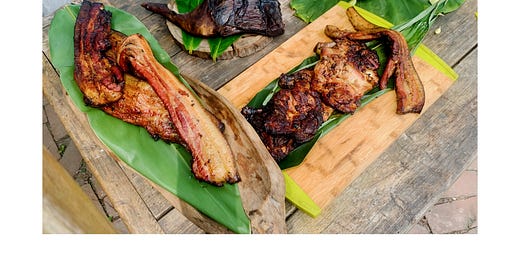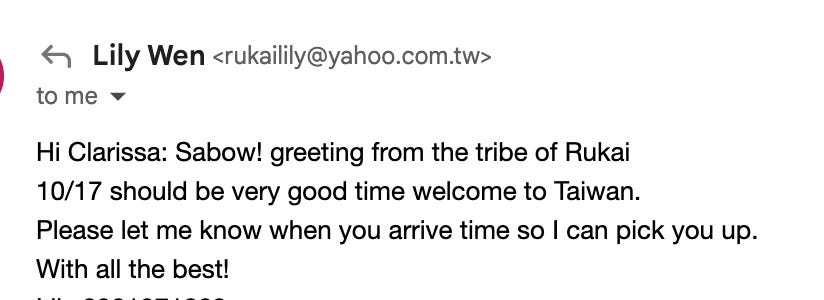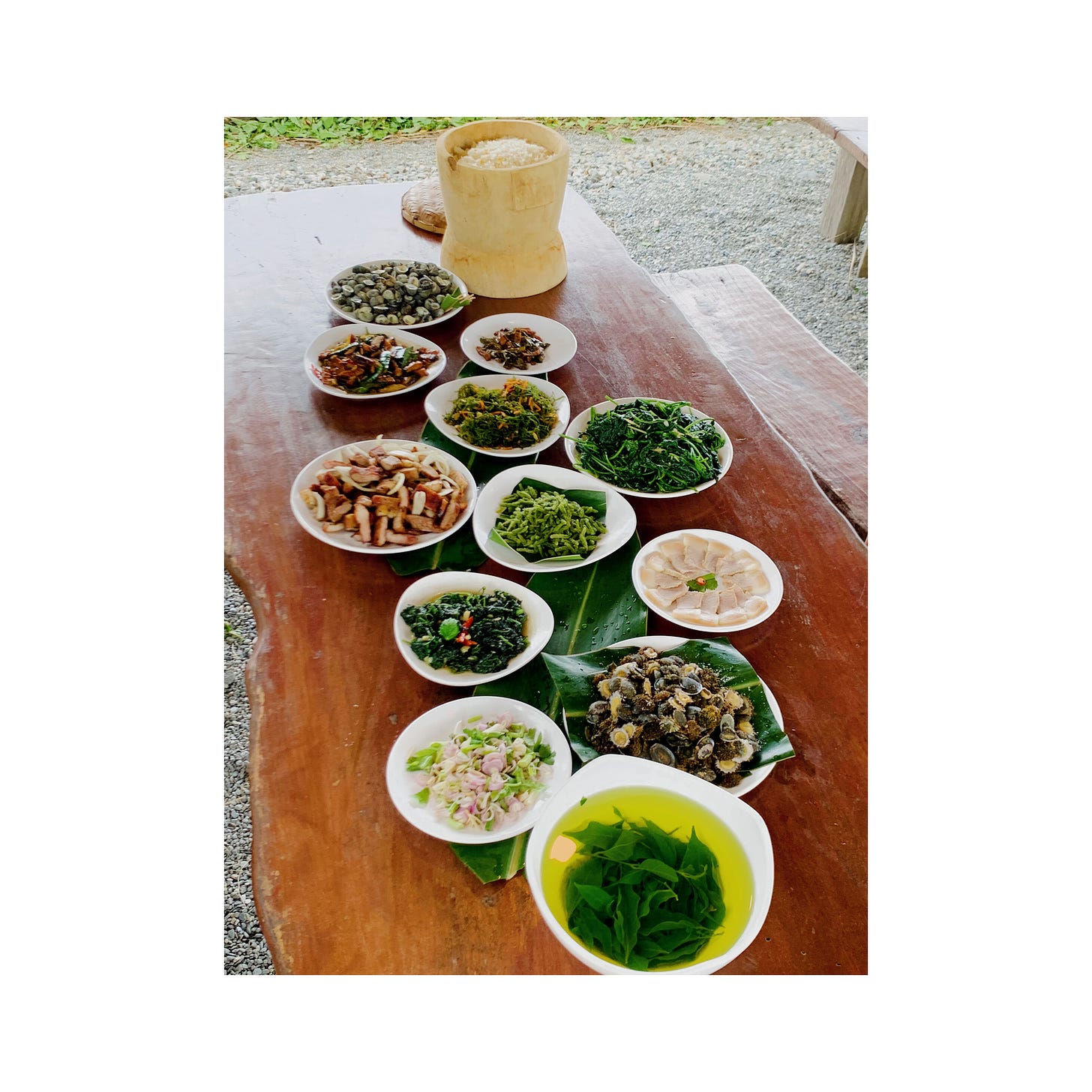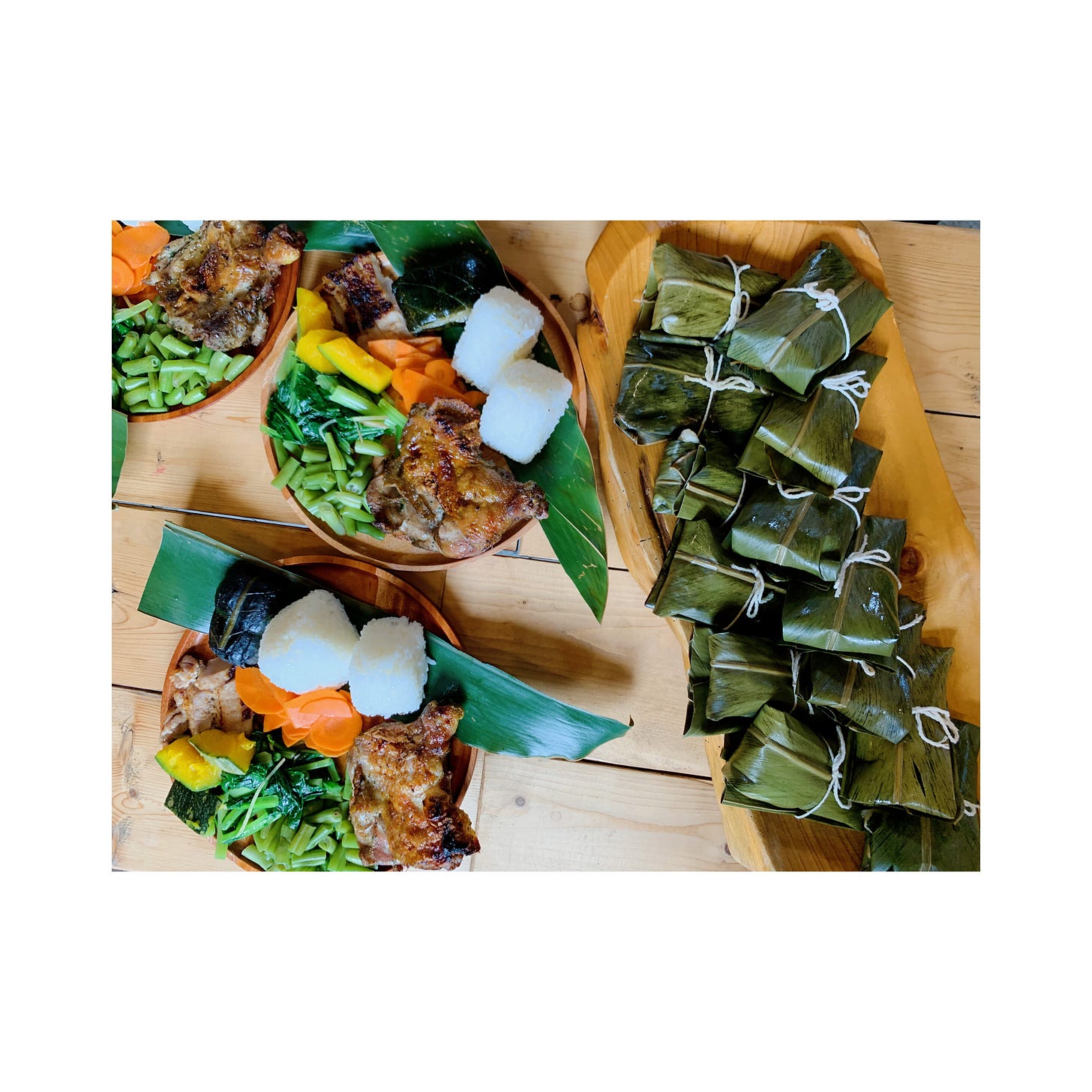Signed copies of my cookbook Made in Taiwan: Recipes and Stories from the Island Nation are available on Now Serving LA, Omnivore Books, Book Larder, and Kitchen Arts.
After much thumb-twiddling, I’m opening this newsletter up to paid subscribers. Paid patrons will get once-a-week exclusive guides, recipes, and deep-dive on topics like my favorite varietals of oolong tea (currently in my drafts!).
For the longest time, I did not enjoy Taiwan. Food, of course, was the staunch exception, but besides eating, I spent all my winter breaks holed up in an old, moldy building in Tainan, mostly cozied up to an old dial-up computer on the first floor. My family would take us out to eat, but that was it. My brother and I killed time by playing computer games and with whatever toys we could get our hands on.
I only started willingly lingering around the island in my mid-20s and spent short multi-week stints on the island picking up assignments: a couple of (now really outdated) listicles, and once — as a co-author of a luxury food and travel guide to the island.
But I never stayed for long. Taiwan was triggering. I hated how the cloyingly nice act people put on was sometimes just a facade. How people dealt with built-up anger by screaming at the top of their lungs instead of calmly talking it out. The patriarchy. How you could never say how you feel. How fake it all seemed. I could smell passive-aggression from a mile away and Taiwan, I believed, reeked of it.
In fact, for a long time, I actually preferred traveling through China because the people I met on my travels said what they meant and how they felt, and there wasn’t as much sugarcoating. I was more extroverted and relaxed and happier in China.
In Taiwan, I felt judged (no doubt, in retrospect, because I was projecting my own childhood traumas onto society at large). For not speaking Chinese well enough, for not being pale enough, for not being Taiwanese enough, for not looking and dressing and speaking and acting like my peers who were born and raised on the island.
My turning point was in 2017 when I was browsing listings on WWOOF and found one by Aeles Lrawbalrate (who also goes by Lily). She advertised herself as the chef and owner of Dawana, an indigenous restaurant in the southeast part of the island, and she was looking for volunteers in exchange for room and board.
After a quick email exchange, I booked a train down south. I spent two months living at her farm/restaurant, where we would spend the mornings in the forest foraging for groceries, the afternoons at her restaurant, and the evenings just hanging out. Her son and daughter-in-law, Cegaw and Ali, showed me the ropes around the tribe and forest. Sometimes we’d go to the river to wash the dishes because it was faster to wash dishes that way, or we’d go looking for driftwood “art” on beach. Other times I’d hang out at Ali’s school where I taught the kids how to weave baskets with tree bark (the irony of this is not lost on me).
Aeles’ Taiwan — Indigenous Taiwan — was a side of the island I had never seen and I fell in love with it.
I found a genuine, deep respect for the land that transcended colonial influences, and for the first time, I felt present. And I don’t just mean present in the mindfulness sense of the word. I mean present insofar as I started to familiarize myself with the country's flora, fauna, and geography, which helped me appreciate Taiwan with a renewed perspective. For the first time ever, I could see myself living on the island— a stray thought that eventually ballooned into my reality.
Seven years later, I’m settled in Taipei. I have a husband, a baby, and we live in a cozy little corner of our own on the outskirts of the city surrounded by verdant green forest. With its low cost of living, universal health care, and low crime rate, Taiwan is comfortable for us. Though I’ll admit: sometimes, I wonder why I’m still here. There are insurmountable cultural differences I don’t think I’ll ever get over. Like, the chabudou 差不多 culture, in which things are slapdashly thrown together (i.e. the kitchen ventilation in my house). Traffic. Banking. Bureaucracy. Education.
But then, sometimes, I’ll be reminded of what made me fall in love with Taiwan in the first place. I had one of those experiences a couple of days ago. I was down south in Taitung on a work trip (I’m producing the Taiwan season for a food and travel show called Lucky Chow, hosted by the lovely Danielle Chang).
We, of course, paid our respects to Aeles and her tribe—the Taromak nation (I’ve written about them extensively before: about their cuisine in my book, about their hunting culture in Saveur, and about her restaurant in Eater).
We also stopped by Kasavakan, a neighboring mountainous tribe that has a reservation-only bento restaurant run by the youths, where we picked shell ginger for rice dumplings. And A'tolan—an ocean tribe; some aunties took us intertidal foraging and whipped up a meal with wild shellfish and seaweed. I found myself inspired and reinvigorated — eager to dive deeper into the ecosystem of Taiwan as the indigenous people see it.
I’ve since realized that I resented Taiwan as a kid simply because I felt disconnected. That, as an American raised on a culture of candor, I was ill-equipped to navigate the subtleties and unspoken nuances of mainstream Taiwanese society. That I gravitate towards Indigenous Taiwan because their cultures are more grounded and are, quite literally, tied to the physical earth and sea.
I came back home to Taipei yesterday with an immediate and renewed appreciation for where I live. I’ll admit that since I’ve had the baby, I’ve been bogged down by a fog of stress and fatigue, and every week as a new parent feels like an uphill battle. So today, I made a conscious effort to practice the lessons that Aeles and her peers have taught me over the years: To pay attention to the plants around me, the contours of the hills that surround my place of residence, the texture of the air, the miscellaneous bird songs. And briefly—just for a couple of minutes—I found myself remembering why I fell in love with this island in the first place.







It's very interesting that you feel people say what they mean and feel in mainland China. I grew up in mainland and always feel like traveling through Taiwan, people are very nice. I guess I did not see through beneath the facada as a tourist 😅
Thank you for sharing your experience and the indigenous hunting cultures. I learned a lot! l
Thank you for articulating the nuance of what is so very difficult to articulate.